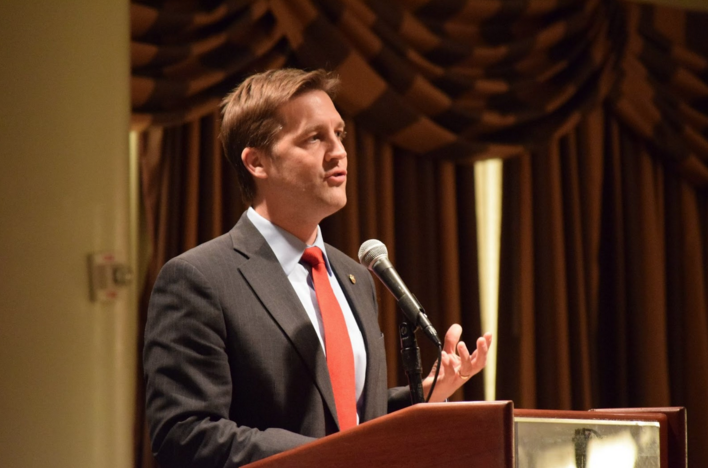Students pay a price for sharing political views on Facebook
It’s no secret that this year’s political race is tense, unpredictable and most of all, heated. While there are plenty of predictions for what is in stake, many Staples students have taken advantage of a popular social media website that was once only used for posting pictures and watching Buzzfeed food videos; Facebook.
Being vocal about a certain party caused many arguments to erupt between students online, practically transforming the website into a political debate. This caused me to wonder – what are the consequences of sharing political beliefs on Facebook?
Nick Bilotti ‘18, a strong supporter of the democratic party, has conveyed his opinions on Facebook frequently. However, with negative feedback regarding his political opinions, Bilotti emphasized the baggage that comes with having a voice. “Multiple times I have had friends send me screenshots of people referring to me on apps like Whatsgoodly and Yik Yak, usually bashing me for my political views…many of the times people will refer to a liberal commenter and say things like ‘probably Nick Bilotti’ or ‘shut up Nick Bilotti.’” Bilotti said.
Although students who have taken advantage of the mask of anonymity do not hesitate to fight Bilotti online, no one has had the courage to face him in person, he later added.
Despite the negative responses, Bilotti continues to share articles, videos, and other media relating to politics on Facebook. He encourages the importance of expressing your beliefs, but only to an extent.
“I honestly think there is a balance,” Bilotti said. “There is a lot that I want to share, but I don’t, simply because I don’t want to offend anyone or annoy people, but at the same time…I want to know that I am doing my part to raise awareness to them…”
Monique Ostbye ‘18, who identifies as part of the democratic party, has witnessed similar experiences as a result of sharing her political views on Facebook. Describing the same Whatsgoodly backlash as Bilotti, Ostbye has been targeted on social media. However, despite gaining a few enemies as a consequence of sharing her views, she has also spoken to people who support her advocations. “I have also had other people say that they love reading about current events and seeing all the different things going on in the world that they wouldn’t’ve been exposed to otherwise.” Ostbye said.
This connection began to further my interest. Is it really fair to be punished in result of sharing your political views?
“Whatever feedback I have gotten has been mostly negative. I chalk that up to the fact that people have different opinions that they are passionate about, and I’m okay with that…If you don’t want to see something, scroll past it. If it’s that much of a hindrance to you, unfollow me or whatever. I won’t be offended.” Andrew Breschard ’18, who supports the republican party, said.
Regardless of what party you support, something all political fans share in common is the hope that people will accept their opinions. Sure, not everyone has the same ideals, but, with support of the First Amendment, every student should be given the opportunity to share their perspectives as long as they are mature enough to respect opposing views. “For the people that don’t like it, all I have to say is that Facebook has the unfriend button for a reason. I won’t stop talking about my opinions because some people are uncomfortable.” Ostbye said.

















































